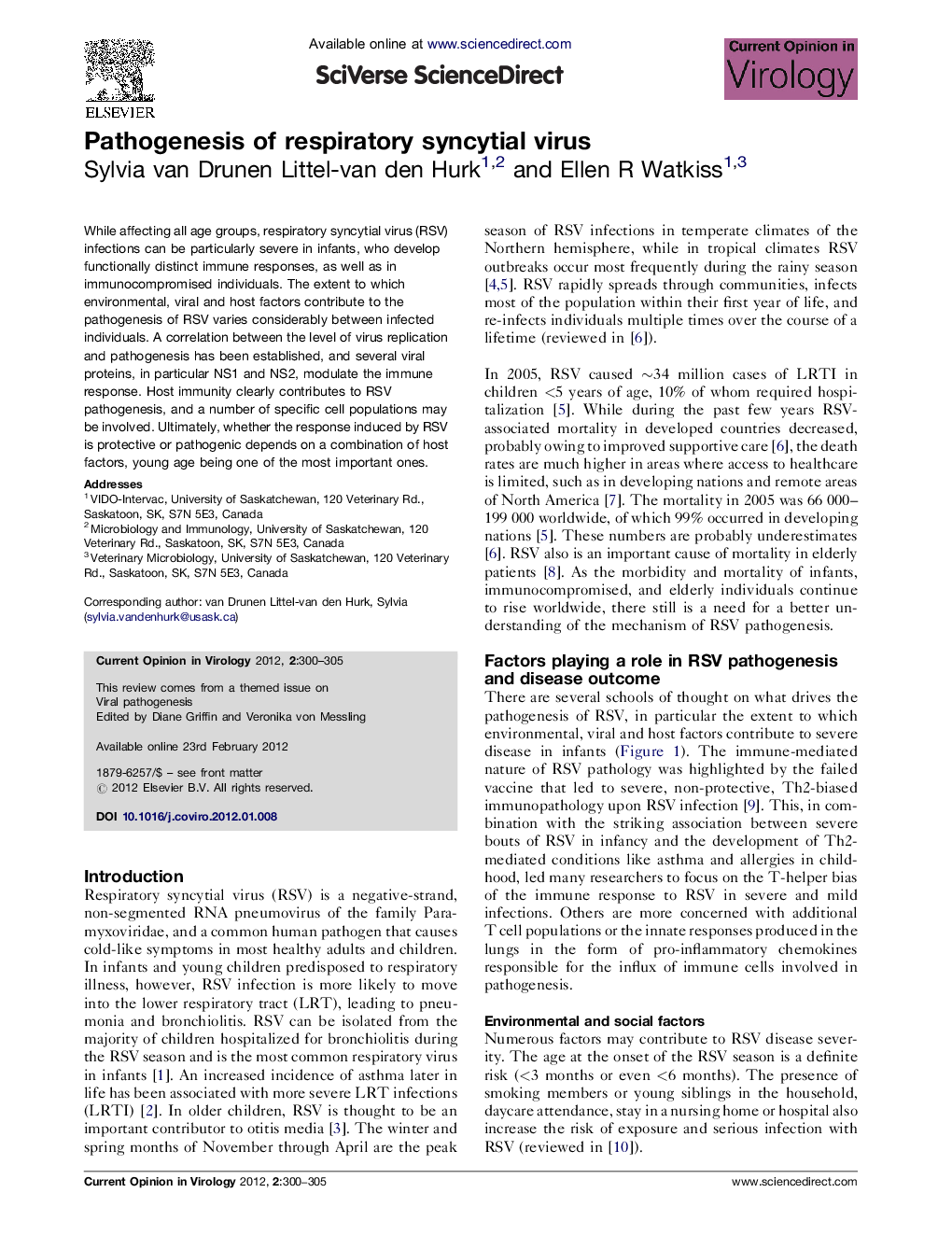| Article ID | Journal | Published Year | Pages | File Type |
|---|---|---|---|---|
| 5806966 | Current Opinion in Virology | 2012 | 6 Pages |
While affecting all age groups, respiratory syncytial virus (RSV) infections can be particularly severe in infants, who develop functionally distinct immune responses, as well as in immunocompromised individuals. The extent to which environmental, viral and host factors contribute to the pathogenesis of RSV varies considerably between infected individuals. A correlation between the level of virus replication and pathogenesis has been established, and several viral proteins, in particular NS1 and NS2, modulate the immune response. Host immunity clearly contributes to RSV pathogenesis, and a number of specific cell populations may be involved. Ultimately, whether the response induced by RSV is protective or pathogenic depends on a combination of host factors, young age being one of the most important ones.
⺠RSV clinical isolates induce variable pathogenesis in a mouse model. ⺠Impairment in up-regulation of CCR7 on RSV-infected dendritic cells may contribute to reduced adaptive immune responses. ⺠Regulatory T cells play a critical role in limiting immunopathology during RSV infection of the lower respiratory tract. ⺠Bone marrow stromal cells were identified as a novel target for RSV, which may have implications for RSV pathogenesis. ⺠A newborn lamb model is suitable to study RSV pathogenesis in both term and pre-term neonates.
